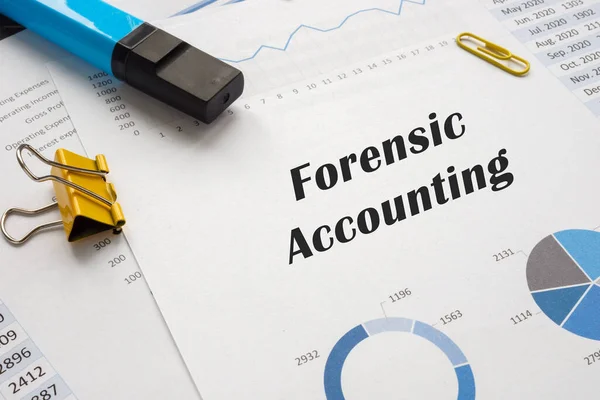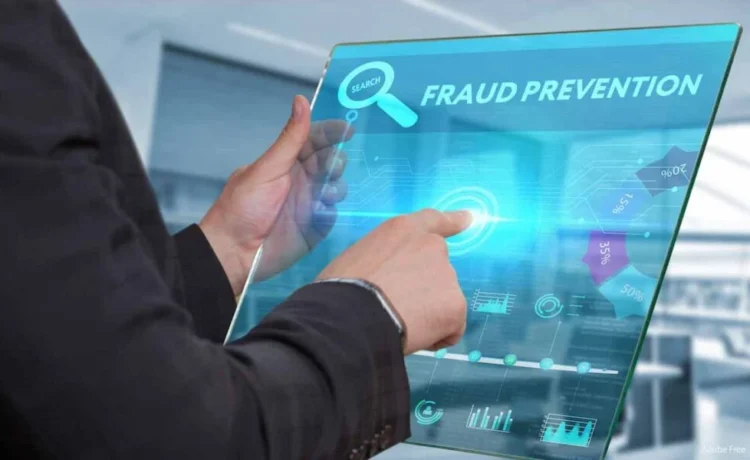Despite what the public believes, ‘Forensic’ has nothing to do with death. “Forensic” refers to the ability to satisfy the rigorous requirements of a legal proceeding (forensic climatology, forensic psychology, forensic science, etc.). Among the main competencies of forensic accountant in Columbia, MD, are proficiency in conducting investigations, grasping the legal system, and carrying out financial analysis and other accounting operations at a caliber that satisfies legal requirements.
Until recently, it was believed that the accounting role included detecting fraud or white-collar crime. The periodic audits conducted by internal or external auditors aim to prevent fraud. But now, we know that an auditor’s scope is limited to determining whether a business’s books comply with company policy and generally accepted accounting principles.
In this post, we discuss the primary role forensic accounting plays in stopping fraud. We also offer recommendations for enhancing accounting practices and technological advancements. These optimizations help organizations safeguard their brand and bottom line.
An Introduction to Forensic Accounting
Forensic accounting uses accounting, auditing, and investigation skills to analyze financial data. Forensic accountants are certified public accountants who focus on criminal evidence cases. These experts often work for insurance firms, banks, and law enforcement.
Examining financial records can take months or even years. Forensic accountants meticulously review records to find inconsistencies and fraudulent activities. This requires a team of specialized accountants who work like detectives trying to solve a case.
Clients usually hire an accounting firm to prosecute someone or to defend themselves. Most medium—to large-sized businesses have a forensic accounting department, often of different forensic auditors.
Methods that forensic accountants use

Forensic accountants examine financial records, internal controls, and non-financial data (such as emails) to ascertain whether fraud has occurred, the amount of the losses, and the potential parties involved. This goes beyond the scope of typical audits.
- Data analytics: To help companies show that they operate ethically and take proactive measures to stop fraudulent activities, forensic audits use strong machine learning (ML), artificial intelligence (AI), and automation (such as bribery and corruption). Businesses could implement rules-based controls to identify dishonest corporate activities, such as manipulating assets or abusing incentive systems.
- An examination of Benford’s Law: With smaller values of the leading digits occurring more frequently than larger values (i.e., leading 1s appear 6.5 times more frequently than leading 9s), this statistical technique analyzes the relative distribution of leading numbers in datasets. Forensic accountants search for an abnormal distribution of leading numbers in financial statements since this could indicate possible numerical manipulation.
- Traceable transactions: Forensic accounting specialists will closely monitor funds transfers across various departments and systems to detect fraudulent activity.
- Interviews: As part of a forensic audit, knowledgeable accountants might interview several employees to establish a timeline of events or look for financial irregularities that indicate fraud.
How do we create a strong framework for preventing fraud?
Even while there is always a chance of fraud in business, employing the skills of forensic auditors and accountants can greatly reduce the likelihood of fraud and help create a more secure financial future.
Here are some other pointers for creating strong fraud prevention procedures inside of businesses:
- Prioritize fraud awareness training across all organizations: Employees who receive regular training on typical fraud strategies and appropriate reporting protocols are more likely to recognize and report suspicious activity, building a strong ethical culture.
- Perform routine risk assessments: Forensic accountants can implement routine risk assessments to determine an organization’s susceptibility to various forms of fraud and provide guidance on how company executives may strengthen controls to mitigate risk.
Update financial services instruments: It is more difficult for fraudsters to carry out crimes unnoticed when organizations are equipped with the newest digital tools to automate transaction authorization, account reconciliations, and reporting. Having clearly defined roles within an organization also facilitates identifying potential transactional errors and taking appropriate measures to stop criminal activity.













